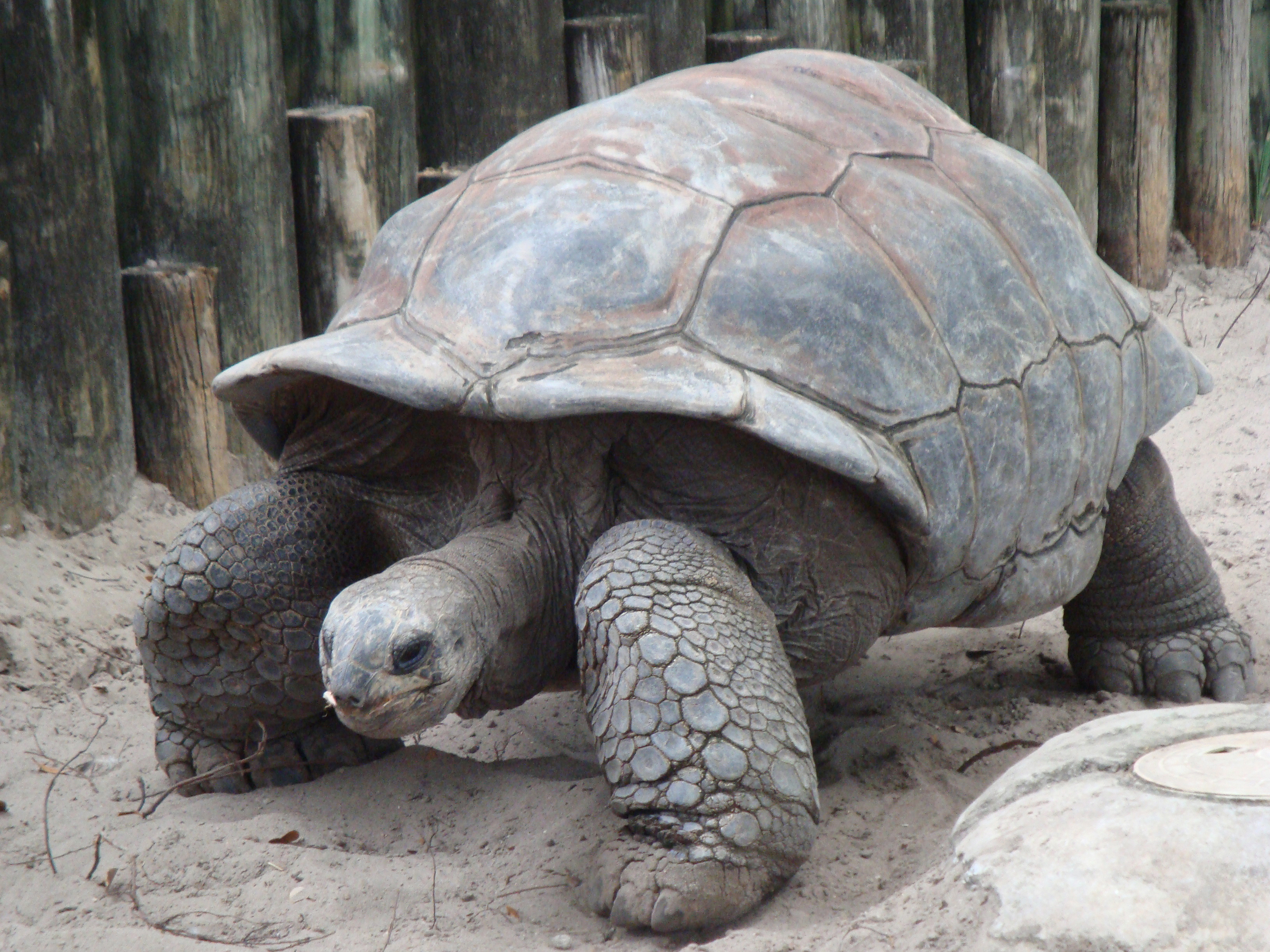How Long Do Tortoises Live? Unveil Their Lifespan Secrets!

Tortoises live for an average of 80-150 years, with some species living up to 200 years. In the wild, tortoises can have varying lifespans depending on factors such as species, habitat, and predators.
These fascinating creatures have adapted to long lifespans, making them unique and intriguing animals to study and care for. Tortoises are known for their slow pace and longevity, captivating the interest of many people worldwide. Their ability to live for several decades or even centuries makes them remarkable creatures in the animal kingdom.
Understanding the factors that contribute to their extended lifespans can provide valuable insights into their biology and conservation. We will explore the fascinating world of tortoises, shedding light on their lifespans, habitats, and conservation efforts.
The Tortoise Lifespan Mystery
Unravel the Tortoise Lifespan Mystery: Discover how long tortoises live and the factors influencing their longevity. From diet to habitat, understanding these aspects can help ensure a healthy and extended lifespan for these fascinating creatures.
Tortoises are fascinating creatures that have captured the imagination of people for centuries. One of the most intriguing aspects of these reptiles is their lifespan. Unlike most animals, tortoises have the unique ability to live for many decades, and in some cases, even more than a century. However, the lifespan of tortoises varies greatly depending on their species and other factors. In this article, we will explore the tortoise lifespan mystery, including the species variations in lifespan and the record holders for the oldest known tortoises.
Species Variations In Lifespan
Tortoises are classified into different species, and each species has its unique lifespan. For example, the African spurred tortoise, which is one of the most popular pet tortoises, can live up to 80 years. Similarly, the Galapagos giant tortoise, which is the largest tortoise species, can live up to 150 years. On the other hand, the Russian tortoise, which is another popular pet tortoise, has a lifespan of 40-60 years. Therefore, it is essential to know the species of tortoise you have to determine their lifespan.
Record Holders: Oldest Known Tortoises
Some tortoises have lived for an incredibly long time, and they have become record holders for the oldest known tortoises. For example, Adwaita, an Aldabra giant tortoise, was believed to have lived for more than 250 years before it died in 2006. Similarly, Harriet, a Galapagos tortoise, lived for 175 years before it passed away in 2006. These record-holding tortoises have fascinated scientists and animal lovers alike, and their longevity has been attributed to various factors, including their slow metabolism, low heart rate, and ability to store water and food in their bodies. In conclusion, the lifespan of tortoises is a mystery that continues to fascinate people worldwide. Understanding the species variations in lifespan and the record holders for the oldest known tortoises is essential for anyone interested in keeping these amazing reptiles as pets or studying them in the wild.
Factors Influencing Tortoise Longevity
Tortoise longevity is influenced by various factors such as species, habitat, diet, and healthcare. Generally, tortoises live for 50-100 years, with some species even reaching 150 years. Proper care, a suitable environment, and a balanced diet are crucial for ensuring the long and healthy life of tortoises.
Factors Influencing Tortoise Longevity Genetics and Biology Environmental Conditions Quality of Care Genetics and Biology Tortoises’ lifespan is influenced by genetics and biology. Each species has inherent genetic traits that affect their longevity. Environmental Conditions The environmental conditions in which a tortoise lives play a crucial role in determining its lifespan. Factors such as temperature, humidity, and access to food and water directly impact their longevity. Quality of Care The quality of care provided to a tortoise significantly affects its lifespan. Proper nutrition, access to sunlight, and regular veterinary care all contribute to their overall well-being and longevity. In conclusion, a tortoise’s lifespan is influenced by genetics and biology, environmental conditions, and the quality of care they receive. Understanding these factors is crucial for ensuring the long and healthy life of these remarkable creatures.
Habitats And Their Impact On Lifespan
Tortoises’ lifespan is influenced by their habitats, with factors such as temperature, food availability, and predation affecting their longevity. Understanding these impacts can help in creating suitable environments for tortoises to thrive and potentially live longer.
Wild Vs. Captivity: A Comparative Analysis
When it comes to the lifespan of tortoises, their habitat plays a crucial role. The environment in which these creatures live has a significant impact on their longevity. Understanding the differences between wild and captive habitats can provide valuable insights into the factors influencing the lifespan of tortoises. In the wild, tortoises experience a range of environmental conditions that can affect their lifespan. They have access to a variety of food sources, including natural vegetation, which contributes to their overall health and well-being. Additionally, wild tortoises have the freedom to roam and engage in natural behaviors, such as digging burrows and basking in the sun. These factors contribute to their longevity and enable them to live their lives to the fullest. On the other hand, captivity can have both positive and negative effects on the lifespan of tortoises. While captive tortoises are protected from predators and have a consistent food supply, they may lack the stimulation and diversity of a natural habitat. Factors such as inadequate diet, limited space for movement, and insufficient exposure to sunlight can have adverse effects on their overall health and lifespan.
Geographical Influence On Longevity
The geographical location where a tortoise resides also plays a significant role in determining its lifespan. Different species of tortoises are adapted to specific climates and habitats, and their longevity can vary accordingly. For example, desert tortoises are well-suited to arid regions and can live for several decades in these harsh environments. Their ability to conserve water and withstand extreme temperatures contributes to their longevity. On the other hand, tortoises from more temperate regions may have different lifespans due to the variations in climate and available resources. Here is a comparison of the average lifespans of some popular tortoise species:
| Tortoise Species | Average Lifespan |
|---|---|
| Aldabra Giant Tortoise | Over 100 years |
| Greek Tortoise | 40-50 years |
| Hermann’s Tortoise | 50-80 years |
| Galapagos Tortoise | Over 100 years |
It is important to note that these figures represent average lifespans, and individual tortoises may live longer or shorter lives depending on various factors such as diet, genetics, and overall care. Understanding the impact of habitats and geographical influences on the lifespan of tortoises is essential for providing optimal care to these fascinating creatures. Whether in the wild or in captivity, creating an environment that mimics their natural habitat as closely as possible can contribute to their overall well-being and longevity. By considering these factors, tortoise owners can ensure that their shelled companions live long and healthy lives.
Diet’s Role In Tortoise Longevity
When it comes to the longevity of tortoises, diet plays a crucial role. Providing the right nutrition can significantly impact a tortoise’s lifespan, ensuring they thrive for decades. Understanding the optimal diet and debunking common dietary misconceptions is essential for promoting the health and longevity of these fascinating creatures.
Optimal Nutrition For Health And Longevity
Ensuring your tortoise receives a well-rounded diet is essential for their overall health and longevity. A balanced diet should consist of leafy greens, hay, and a variety of vegetables to provide essential vitamins and minerals. Additionally, calcium and vitamin D3 supplements are often necessary to support their bone health and prevent metabolic bone disease.
Common Dietary Misconceptions
Contrary to popular belief, tortoises cannot thrive on a diet solely consisting of commercial tortoise pellets. While these pellets can be a part of their diet, they should not be the sole source of nutrition. Additionally, offering excessive amounts of fruit can lead to health issues due to the high sugar content. It’s vital to prioritize a diverse and natural diet to ensure their nutritional needs are met.
Common Health Challenges
Tortoises are known for their longevity, with some species living up to 150 years. However, they also face health challenges such as respiratory infections, shell injuries, and nutritional deficiencies, which can affect their lifespan. Proper care, including a balanced diet and a suitable environment, can help address these issues and ensure a longer, healthier life for tortoises.
Shell And Skin Conditions
Tortoises can develop various shell and skin conditions that may affect their overall health and well-being. Some common shell and skin issues include: 1. Shell Rot: This is a bacterial or fungal infection that can occur when the tortoise’s shell is damaged or not properly cared for. It is characterized by soft or discolored areas on the shell, along with a foul odor. Shell rot can lead to serious health problems if left untreated. 2. Shell Pyramiding: This condition is characterized by abnormal growth of the shell, resulting in pyramid-like bumps or ridges. It is often caused by improper diet, inadequate lighting, or incorrect temperature and humidity levels. Shell pyramiding can weaken the shell and make the tortoise more susceptible to injuries and infections. 3. Shell Injuries: Tortoises can sustain shell injuries from falls, predator attacks, or improper handling. These injuries can range from minor cracks to severe fractures. Shell injuries can expose the tortoise to infections and may require veterinary intervention. 4. Skin Infections: Tortoises are prone to skin infections caused by bacteria or fungi. These infections can manifest as redness, swelling, or lesions on the skin. Proper hygiene and a clean environment are essential for preventing and treating skin infections in tortoises.
Respiratory And Digestive Issues
Tortoises are susceptible to respiratory and digestive problems that can impact their health and longevity. Here are some common issues to be aware of: 1. Respiratory Infections: Tortoises can develop respiratory infections, especially if they are kept in damp or poorly ventilated environments. Symptoms include wheezing, coughing, nasal discharge, and lethargy. Prompt veterinary attention is necessary to treat respiratory infections and prevent further complications. 2. Intestinal Blockages: Tortoises may ingest foreign objects or eat inappropriate foods that can cause blockages in their digestive system. This can lead to severe discomfort, loss of appetite, and even death if not addressed promptly. A proper diet and monitoring of the tortoise’s eating habits can help prevent intestinal blockages. 3. Vitamin Deficiencies: Inadequate levels of essential vitamins, such as vitamin D3 and calcium, can result in metabolic bone disease (MBD) in tortoises. MBD weakens the bones and shell, leading to deformities, fractures, and overall poor health. Providing a balanced diet and proper UVB lighting is crucial for preventing vitamin deficiencies. 4. Gastrointestinal Infections: Tortoises can contract bacterial or parasitic infections that affect their digestive system. Symptoms may include diarrhea, loss of appetite, and weight loss. Regular fecal examinations and maintaining a clean enclosure can help prevent and detect gastrointestinal infections. Remember, a healthy tortoise requires proper care, a suitable environment, and regular veterinary check-ups. By addressing common health challenges promptly, you can ensure your tortoise lives a long and fulfilling life.
The Science Of Aging In Tortoises
Tortoises are known for their impressive lifespans, often outliving their human counterparts. The science of aging in these remarkable creatures is a fascinating subject that has intrigued researchers for decades. Through the study of metabolic rate, lifespan, and the aging processes, scientists have gained valuable insights into the longevity of tortoises.
Metabolic Rate And Lifespan
The metabolic rate of tortoises plays a crucial role in determining their lifespan. Unlike mammals, tortoises have a remarkably slow metabolic rate, which contributes to their extended lifespan. This slow metabolism allows them to conserve energy and thrive in environments with limited resources.
Research On Aging Processes
Research on the aging processes in tortoises has revealed fascinating findings about the mechanisms that contribute to their longevity. Studies have shown that tortoises exhibit unique cellular and molecular processes that contribute to their ability to resist the effects of aging, such as DNA damage and oxidative stress.
Conservation Efforts For Longevity
Tortoises are remarkable creatures that can live for many decades, but they face threats that endanger their existence. Conservation efforts play a crucial role in ensuring the longevity of tortoise species.
Threats To Tortoise Species
1. Habitat loss: Deforestation and urbanization threaten tortoises’ natural habitats.
2. Illegal wildlife trade: Poaching for the exotic pet trade poses a significant threat to tortoise populations.
3. Climate change: Rising temperatures and habitat disruption impact tortoises’ survival.
Successful Conservation Stories
1. Breeding programs: Controlled breeding in captivity helps boost tortoise populations.
2. Protected areas: Creating reserves and sanctuaries safeguards tortoise habitats.
3. Community involvement: Engaging local communities in conservation efforts raises awareness.
Caring For An Ageing Tortoise
As tortoises age, they require special care to ensure their well-being and longevity. Caring for an ageing tortoise involves understanding their unique needs and making adjustments to their environment and diet.
Special Needs Of Elder Tortoises
Elderly tortoises may have difficulty moving, so provide a flat, easily accessible habitat.
Offer softer foods to accommodate their changing nutritional requirements.
Ensure they have access to fresh water at all times.
Vet Care And Regular Check-ups
Schedule regular vet check-ups to monitor their health and address any issues promptly.
Discuss with the vet about potential age-related health concerns.
Maintain a clean habitat to prevent infections and diseases.
Tortoise Lifespan Faqs
Tortoise Lifespan FAQs provide valuable information on the average lifespan of tortoises. Discover how long these fascinating creatures live and gain insights into their longevity in this comprehensive guide.
How To Determine A Tortoise’s Age
Examining shell rings can estimate a tortoise’s age.
Improving Tortoise Lifespan
Ensuring a balanced diet promotes longevity in tortoises.

Credit: zh.wikipedia.org
Frequently Asked Questions
How Long Do Tortoises Live?
Tortoises have an impressive lifespan, with some species living well over 100 years. The exact lifespan depends on factors like species, habitat, and diet. For example, the Galapagos tortoise can live up to 150 years, while the African spurred tortoise can live up to 80 years.
Proper care, diet, and a suitable environment are crucial for ensuring a long and healthy life for these fascinating creatures.
What Factors Affect The Lifespan Of Tortoises?
Several factors can influence the lifespan of tortoises. Genetics, diet, habitat, and overall care play significant roles in determining how long they live. Providing a balanced diet, a suitable environment with proper temperature and humidity, regular veterinary check-ups, and protection from predators and hazards are essential for ensuring a tortoise’s longevity.
Additionally, minimizing stress and providing mental stimulation contribute to their overall well-being.
How Can I Ensure A Long And Healthy Life For My Pet Tortoise?
To ensure a long and healthy life for your pet tortoise, it’s essential to provide proper care. This includes offering a suitable enclosure with the right temperature and humidity levels, a balanced diet consisting of appropriate vegetation and occasional calcium supplements, regular veterinary check-ups, and protection from predators.
Additionally, providing opportunities for exercise, mental stimulation, and social interaction can contribute to their overall well-being.
Do Tortoises Require Any Specific Diet To Live Longer?
Yes, tortoises require a specific diet to live longer. Their diet should consist mainly of leafy greens, such as kale, dandelion greens, and collard greens. Hay and grasses also form an important part of their diet. Additionally, providing calcium-rich foods like cuttlebone or calcium supplements is crucial for their bone health.
Avoid feeding them high-protein or high-fat foods, as these can lead to health problems.
Conclusion
Tortoises are long-lived creatures that can make great pets for those who are willing to make a long-term commitment. Understanding the lifespan of tortoises is important for their care and wellbeing. With proper care and attention, many species of tortoises can live for several decades or even up to a century.
As with any pet, it is important to do your research and ensure that you are able to provide the necessary care and attention for the entire duration of their life. By doing so, you can enjoy a rewarding and fulfilling relationship with your tortoise for many years to come.



